
Likely Billionaires To Watch out For
The future is promised to no one. But for these innovators it certainly looks bright. Meet our picks for likely billionaires in the making
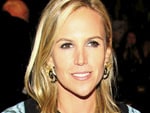
Tory Burch
$800 MILLION
US, Fashion
The glamorous UPenn graduate worked for Ralph Lauren and Vera Wang before launching her eponymous preppy-casual line in 2004. Her Reva ballet flats, conceived in 2006 and named after her mother, are $200-a-pair staples of urban wardrobes. Recent reports suggest her ex-husband plans to sell his third of the private company for upwards of $600 million; if he gets a higher price or if Tory Burch LLC floats next year as rumoured, the mother of 3 could find herself a member of the billionaires’ club.
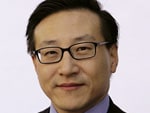
Joseph Tsai
$800 MILLION
CANADA, Internet
Alibaba’s co-founder and CFO has helped to raise nearly $7.8 billion of financing, including the sale of a 40% stake in the company to Yahoo in 2005. The Chinese e-commerce site’s more visible co-founder, Jack Ma, praised Tsai as one of 4 people for whom he was thankful in life, along with kung fu novel writer Louis Cha and fellow shareholders Masayoshi Son of Softbank and Jerry Yang of Yahoo. Born in Taiwan, Tsai got his undergrad and law degrees from Yale and then did a stint as a lawyer at Sullivan & Cromwell in New York before heading to Asia to invest on behalf of Sweden’s Wallenberg family.
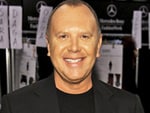
Michael Kors
$780 MILLION
US, Fashion
Breakout year for the American fashion designer and Project Runway judge. Not only did he wed longtime partner and former intern Lance LePere on Southampton, New York’s Dune Beach in August, but his fashion house also debuted on the NYSE in December, popping 25% in its first day of trading. Kors had dropped out of FIT to design an in-house line for a 57th Street store called Lothar’s when Bergdorf Goodman, situated across the street, took notice. A year later Kors released his debut with Bergdorf’s backing.
Stephen Saad
$720 MILLION
SOUTH AFRICA, Pharmaceuticals
Chief executive of Aspen Pharmacare, he’s best known for his success in securing voluntary licences from global giants like Glaxo SmithKline to produce anti-retrovirals to fight HIV/AIDS and for securing FDA approval as an anti-retroviral producer under President Bush’s Emergency Plan for AIDS Relief. His first big success was turning around a regional pharmaceutical distributor called Quickmed in the early 1990s, merging it with eyedrop manufacturer Covan and then selling that business for $10 million when he was just 29. He used the funds to start Aspen in 1997; it now has a market cap in excess of $6 billion.
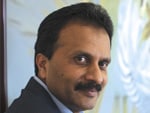
VG Siddhartha
$700 MILLION
INDIA, Coffee Shops
Son of a coffee plantation owner, he opened his first Café Coffee Day in Bangalore in 1996 and now runs 1,200 cafes in India and 2 dozen overseas. KKR invested in 2010, which should help as Café Coffee Day girds for battle with Starbucks, soon heading to India in a JV with the Tata group. He also owns 10,000 acres of coffee plantations and has interests in financial services, real estate, hospitality and furniture manufacturing.
Samwer brothers
$650 MILLION
GERMANY, Internet
The Samwer brothers—Marc, 41, Oliver, 38, and Alexander, 36—created some of the most successful internet companies in Europe, including Alando, acquired by eBay in 1999, and Jamba, picked up by Verisign in 2004 and now part of News Corp. Groupon bought the Samwer-backed outfit City-Deal for stock in 2010, giving the brothers a stake in the newly public company. The brothers also owned a small sliver of Facebook but sold their stake last year. Other investments include Home-Away and LinkedIn.
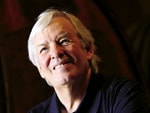
Bill Foley
$600 MILLION
US, Investments
The chairman of $4 billion (market cap) mortgage giant Fidelity National Financial has spent the last few years buying distressed wineries in hopes of turning them around. He’s invested more than $200 million from California to New Zealand, including big-name vineyards like Chalk Hill and Firestone. “I’m trying to get good brands that have gotten themselves overleveraged,” he told Forbes. Foley also owns the Whitefish Mountain Resort in Montana, as well as that state’s Glacier Restaurant Group. In April Fidelity will close on the purchase of O’Charley’s, a chain of 340 restaurants that’s based in Nashville.
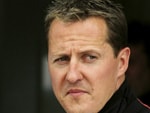
Michael Schumacher
$520 MILLION
GERMANY, Race Car Driver
The greatest driver in the history of Formula One racing returned to the track in 2010 after a 3-year retirement from the sport. Schumacher, 43, has grossed more than $800 million in salary, endorsements and licensing income during his 17-year career across 3 different F1 teams. Schumacher was the highest-paid athlete in the world at his peak in the early 2000s, earning $80 million a year. He’s won 91 races and 7 season championships.
Ivo Lukacovic
$500 MILLION
CZECH REPUBLIC, Internet
Lukacovic, 38, started Czech Republic web portal and search engine Seznam.cz in 1996 in his parents’ bedroom after writing code at a web directory. Seznam.cz is now the largest internet provider in the country, with more than 4 million users. Lukacovic owns 70% of the company. The Prague resident sponsors a hippopotamus at the Prague zoo.
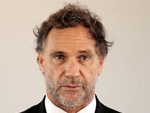
Oskar Metsavaht
$400 MILLION
BRAZIL, Sportswear
Sports medicine doctor and outdoor enthusiast designed a jacket for a trek in the mid-1980s. The response was so good that a few years later he quit his profession to create high-end sportswear inspired by his love for snowboarding and surfing. His Osklen brand now has 64 stores in Brazil and 9 abroad. It is in talks to sell a stake to LVMH, PPR or a Brazilian retailer.
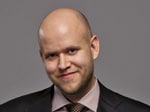
Daniel Ek
$300 MILLION
SWEDEN, Spotify
The “most important man in music” has built a digital service that’s as easy to use as iTunes, as social as Facebook and as cheap as piracy (as in free). The software programmer and skilled musician launched Spotify in Europe in 2008 and debuted the product in the US last summer. Revenue estimates place Spotify’s value near $2 billion, making Ek worth $300 million on paper—a number likely to climb the charts if use continues to soar.
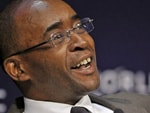
Strive Masiyiwa
$285 MILLION
ZIMBABWE, Telecom
His Econet Wireless serves about 10 million subscribers in countries such as Zimbabwe, Botswana, Lesotho, Burundi and Rwanda. He recently launched the Home Power Station, a solar-powered device that provides inexpensive energy to rural areas. A devout Christian, he tithes 10% of his annual income to his church.
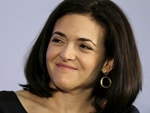
Sheryl Sandberg
UNDER $100 MILLION
US, Internet
One of the most powerful women in Silicon Valley and considered the glue that holds Facebook together, the social networking site’s COO has a lot to gain once her company has its IPO this year. Based on financial filings, her personal net worth is less than $100 million, but it could soar if and when the restricted stock units vest and Facebook’s post-IPO stock price pops, as some analysts expect. The Harvard MBA was previously a vice president at Google.
The Methodology
More than 50 reporters in 16 countries worked on compiling Forbes' 25th anniversary World’s Billionaires rankings. Throughout the year our reporters meet with the list candidates and their handlers and interview employees, rivals, attorneys and securities analysts. We keep track of their moves: The deals they negotiate, the land they’re selling, the paintings they’re buying, the causes they give to. To estimate billionaires’ net worths we value individuals’ assets, including stakes in public and private companies, real estate, yachts, art and cash–and account for debt. Not that we pretend to know what is listed on everyone’s private balance sheet, though some folks do provide that information. We do attempt to vet these numbers with all billionaires. Some co-operate, others don’t.
We have not included fortunes dispersed across large families (as in those of the Du Ponts) when individual net worths are below our minimum of $1 billion per name. But we do include wealth belonging to a member’s immediate relatives if the wealth can ultimately be traced to one living individual; in that case “& family” indicates that the number shown includes money belonging to more than one person.
Our estimates of public fortunes are a snapshot of wealth on Feb. 14, 2012, when we locked in stock prices and exchange rates from around the globe. Some on our list will become richer or poorer within weeks–even days–of publication. Privately held companies are valued by coupling estimates of revenues or profits with prevailing price-to-revenues or price-to-earnings ratios for similar public companies.
(This story appears in the 30 November, -0001 issue of Forbes India. To visit our Archives, click here.)




